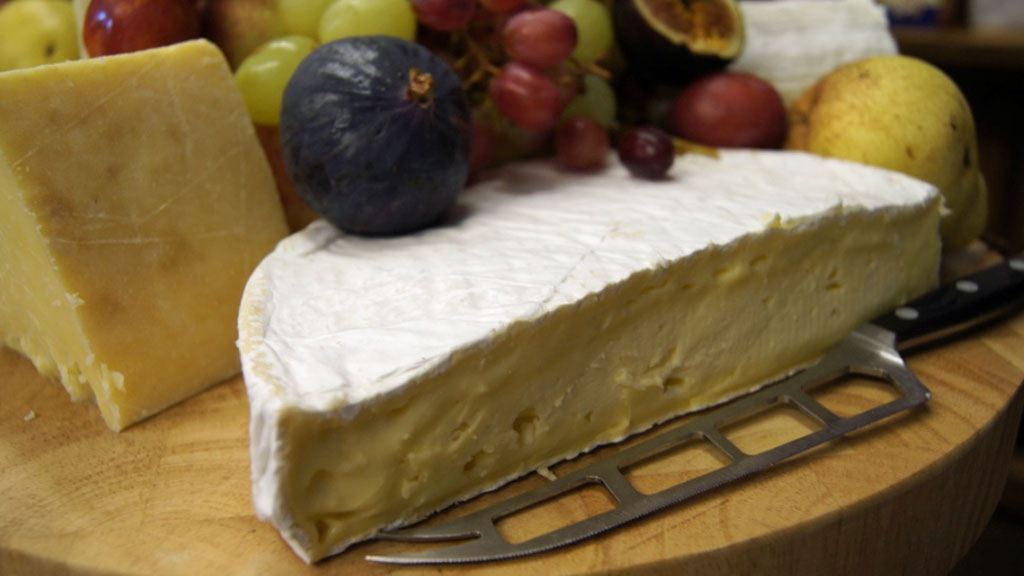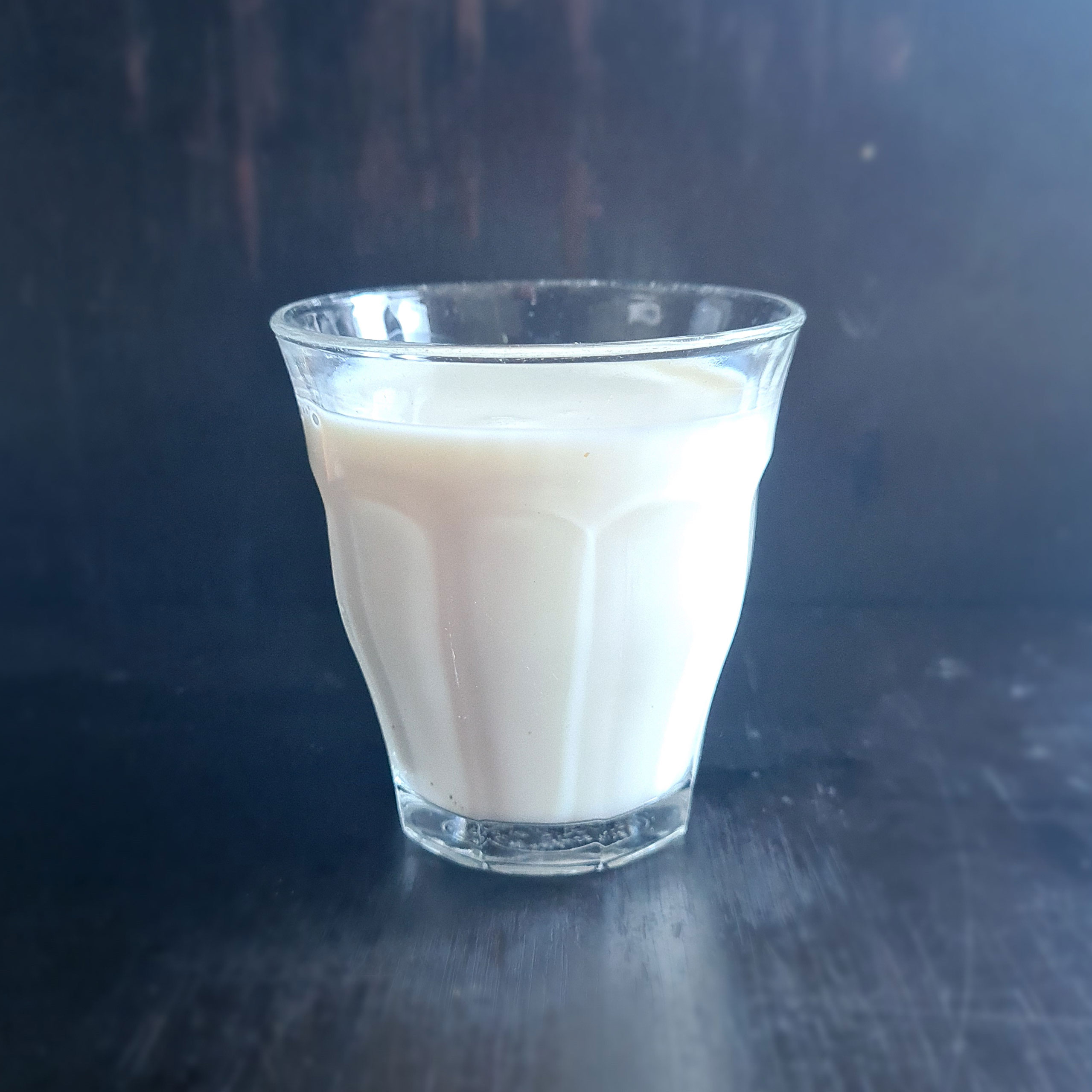
Tara Vaughan-Hughes
Tara, the Food Strategy Lead for Dartington, links our food areas across the estate (retail, pub, cafe, and higher learning) to create and maintain a sustainable food system that aligns with our current and future aspirations.
There is a food you can eat that can decrease your risks of certain cancers. It can stabilise diabetes, and help you maintain or reduce your weight. It also offers protection against hypertension and strokes. And it may even help you live longer.
What is this great new superfood?!
It’s dairy.

Here is one takeaway:
“…the greatest increase in attributable deaths and Disability Adjusted Life Years between 1990 and 2016 occurred for a diet high in red meat, followed by a diet high in sugar-sweetened beverages and a diet low in milk, respectively.”
In other words, if you don’t drink enough dairy milk, you run the risk of an earlier death. That was certainly news to me!
The study goes on to say that the intake of both saturated and unsaturated fat was linked with a reduced risk of death from cardiovascular disease, and the ingestion of saturated fat was associated with a reduced risk of stroke.
Add to this the fact that dairy milk is a complete food in terms of micro- and macronutrients, protein content, carbohydrates (lactose), and fat. What’s not to like?
Obviously there are people who cannot or will not drink dairy milk; lactose intolerance, dairy allergies, and veganism are three good reasons. People looking to watch their weight may also benefit from plant-based milks, which are often lower in calories.
Another very compelling reason to avoid dairy is the dairy industry itself, which has been singled out as a major cause of deforestation, climate change, increased water use, ocean dead zones, and animal cruelty.
So while there appears at this point to be very little benefit health-wise from drinking alternative milks (other than decreased calorie consumption), there may be a very obvious ecological benefit. But that depends on what farming methods you are looking at, for both the dairy and the non-dairy milk.
Water usage, eutrophication (nutrient rich run-off from farming), greenhouse gas emissions, and land use are all measurable and all change based on the farms’ practices: intensive farming, mono-cropping, regenerative farming – you name it, it has an impact.
A small-scale farm producing dairy may have surprisingly robust practices compared to, say, a large corporation producing alternative milk, which buys its ingredients from various mono-cropping, pesticide-sprayed farms and then highly processes these ingredients with additives.
Or it may not.
Well, this complicates things.
Knowing the right thing to do is not always easy, that’s for sure.
At Dartington, we constantly evaluate the milk (and every food product) that we sell. We have a seemingly simple but in practice complicated metric that helps us to define what is the best choice. We look for:
Local
Organic or best practice
Seasonal
Sustainable
Fair Trade
The gold standard for dairy milk on the estate is the milk from Riverford Organic Dairy. It ticks the boxes of local, organic/best practice, sustainable, and fair trade.
As a side note, the milk changes from winter to summer, based on what the cows are eating. Letting the cows eat what’s in the field means the milk is truly seasonal; it may behave differently when it is steamed, and it may seem richer at some times of the year. If you’re a dairy-in-your-coffee drinker, see if you can spot the differences throughout the year!
The only sour note (pardon the dairy pun) is that Riverford Dairy uses plastic bottles, so we feel that lets us down on the sustainable front. We’re not happy with the packaging, but our current waste program takes the bottles and recycles them, so at least they are not going to landfill.

Well, no.
We’ve been intrigued by How Now’s packaging, which is a cardboard outer with a plant-based plastic pouch inside which holds the milk. How Now will take back its completely compostable packaging and, well, compost it. They then use that on the fields, and in turn the fields become rich and healthy and support the cows who supply the milk. It’s such a simple and obvious – even ingenious – system.
Why don’t we buy How Now milk? It’s all down to cost at this point. How Now milk is twice the price of Riverford milk. Most of our customers are quite happy to see the prices of coffee and other items stay where they are. It doesn’t seem that the financial outlook is getting rosier for most people any time soon, so it is unlikely that anyone would ask for a price increase in this or anything else for that matter.
But for those who prioritise the earth over their wallets, perhaps we could have a ‘conscious coffee’ option with a surcharge of 50p? This would add a little more complexity at the barista station, but ultimately, the final barrier to this is storage space and wastage, so we will have to explore it a little further before implementing any changes.
You can let Matty and his team know what you think, next time you pop into the Green Table for a cuppa.
Source links
https://academic.oup.com/nutritionreviews/issue/79/7
https://pubmed.ncbi.nlm.nih.gov/34796724/
https://www.healthline.com/nutrition/5-studies-on-saturated-fat
https://www.healthline.com/nutrition/healthiest-milk
https://www.sfgate.com/shopping/article/healthiest-non-dairy-milk-16784967.php
https://www.nytimes.com/2021/05/10/style/plant-milk.html
